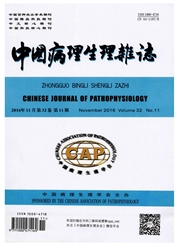

 中文摘要:
中文摘要:
在人类历史上,艾滋病(acquired immunodefi-ciency syndromes,AIDS)是最为严重的传染病,这体现在它既是一种流行范围极广的疾病,又是一种死亡率极高的疾病^[1]。HIV病(human immunodeficiency virus disease,HIV disease)指从HIV感染到AIDS发病的整个病程。就目前的情况看来,HIV病的流行趋势还没有丝毫的减弱,
 英文摘要:
英文摘要:
A breakthrough has recently been made in the studies on pathogenesis of HIV disease, which result in some new theories. New strategies for HIV drug and vaccine development are emerging in the impact of these new understandings. The intestinal infection hypothesis proposes that HIV disease can be regarded as some kind of infectious disease of gut immune system as the major HIV infection is located in intestine. The acute catastrophe hypothesis suggests that the subsequent pathological changes are the fallout from a mucosal catastrophe of acute intestinal HIV infection, in which the majority of CD4^+ T cells are deleted due to infection. The general immune overactivation hypothesis proposes that the general immune overactivation is harmful to patient as it increases the cell susceptibility to HIV infection and supportiveness of HIV replication. The host proteins related to HIV replication can be new targets for HIV drug discovery. The mucosal vaccine strategies, which attempt to induce HIV specific neutralizing antibodies on mucosal surface may be the first choice in development of prophylactic HIV vaccines. Induction of tolerance may be one of the strategies for HIV therapeutic vaccines because HIV disease can be regarded as autoimmune disease caused by HIV infection.
 同期刊论文项目
同期刊论文项目
 同项目期刊论文
同项目期刊论文
 期刊信息
期刊信息
